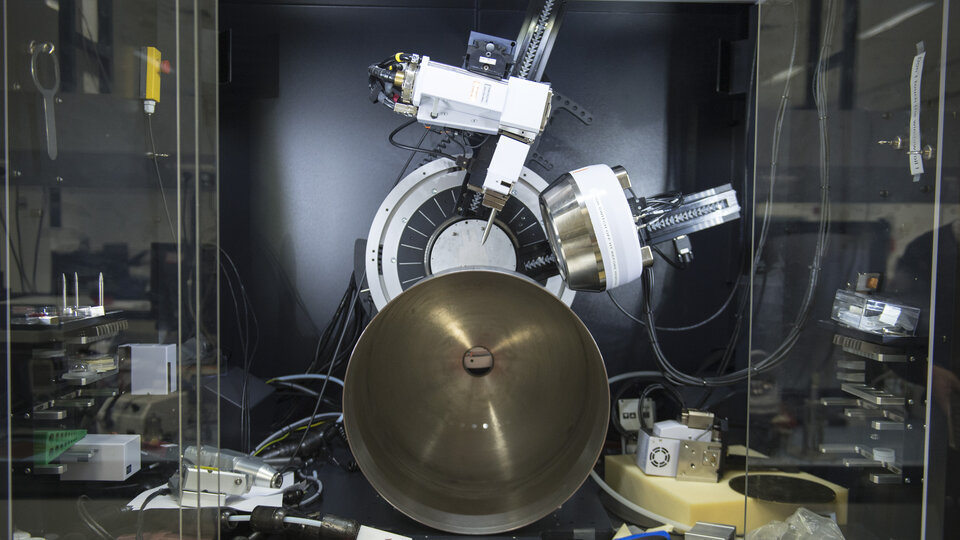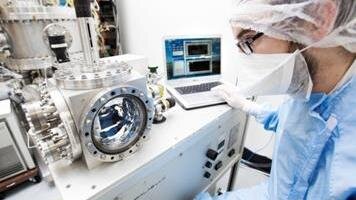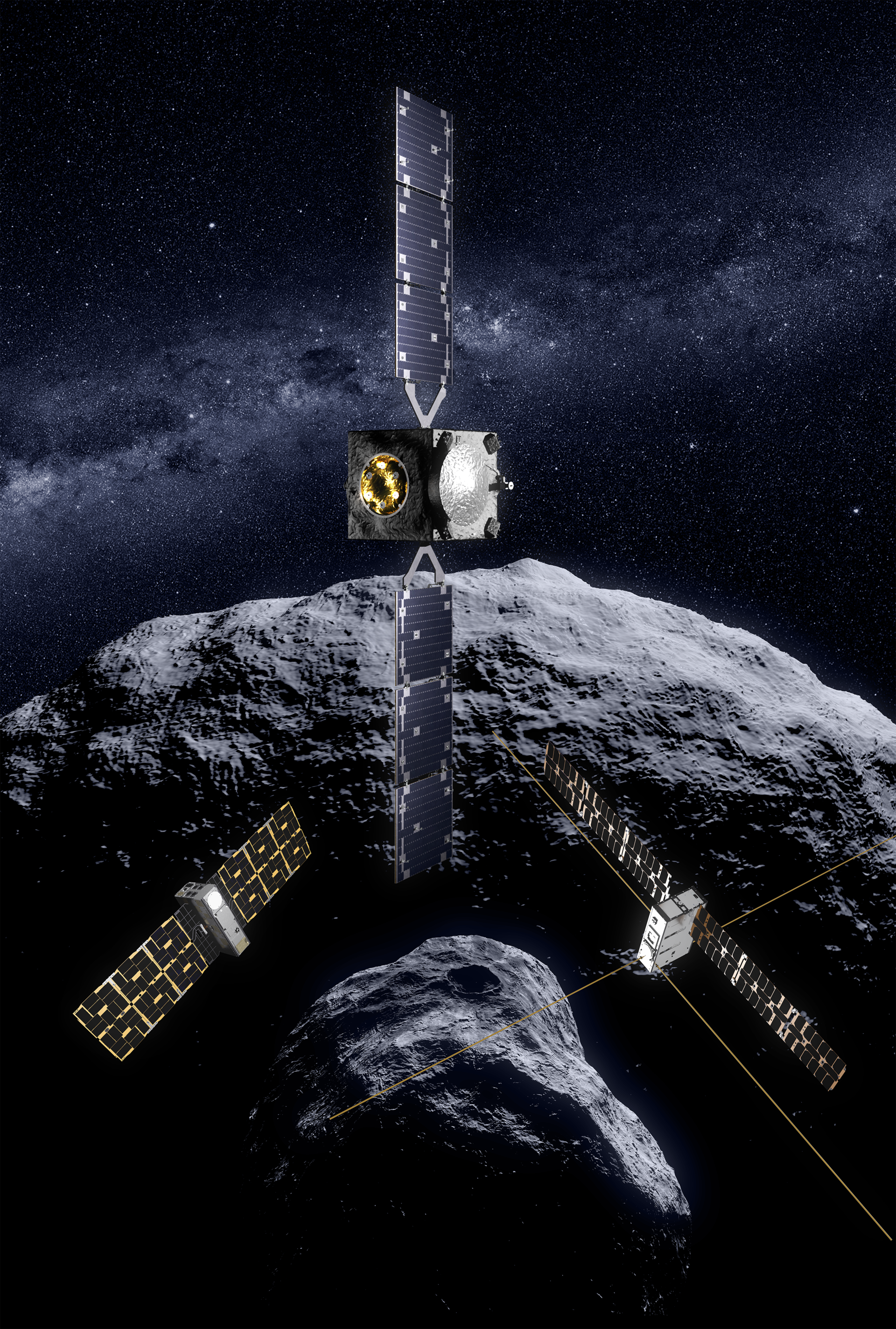Exploring sustainable solutions for greener space missions
The success of a space mission heavily relies on the proper functioning of its moving elements. To ensure the smooth operation of these moving parts, ESA is researching lubricants that are more durable, eco-friendly, and suitable for space missions. Ionic liquids have emerged as a promising alternative to traditional lubricants.
Ionic liquids are fluid salts that have relatively low melting temperatures. They are known for being very stable chemicals, and resistant to high temperatures and thermo-oxidation. The unique characteristics of these salts make them invaluable in various applications, especially as lubricants and green solvents.
One of the main advantages of ionic liquids is that they offer a safer alternative to traditional solvents that pose environmental and health risks. Unlike other solvents, these liquid salts are non-volatile, which means that they release fewer harmful gases into the atmosphere and generate less contamination. Additionally, in many cases, they are more stable and longer lasting than conventional solvents.
"There is also another big motivation to look into ionic liquids as lubricants. Many greases for space applications contain fluorinated organic substances. Such substances could have harmful effects on human health and environment. Recently, the European Chemical Agency is considering imposing stricter regulations to curb the use of these substances," says Malgorzata Holynska, ESA engineer. "This could have an impact not only on the space industry, but also in our daily lives e.g. with non-stick frying pans."

Despite being promising substitutes to PFA-based lubricants, there is a major concern associated with the use of ionic liquids: their potential to cause corrosion in metallic materials. "At ESA, we have been working with these substances for some time and performing specific testing such as vapour pressure, outgassing properties, basic friction and wear testing. Those tests showed promising results, but we encountered this problem with corrosiveness." explains Malgorzata. "It was therefore very timely when we received an idea on the Open Discovery Ideas Channel of OSIP, looking into this topic." The idea for an Early Technology Development, "Highly Durable Vacuum Lubricant Formulations Based On Ionic Liquids" from MATERIALES passed the idea and proposal stages and is now implemented under ESA's Discovery Programme.
The selected team, the German company MATERIALES, is actively addressing this problem, conducting research to develop formulations that incorporate ionic liquids with protective effects. "Although widely researched in academia, most of the studies with these substances are limited and do not mention their entire suitability for lubricant use," tells Fabian Schüler, managing director of the company.
"We are working on a laboratory prototype with non-corrosive effects that can be produced on a large scale for commercial use. To achieve this, we want to make sure that the lubricant is durable and meets all major requirements and specifications for space applications." adds Fabian.

MATERIALES is collaborating with two subcontractors: the European Space Tribology Laboratory (ESTL) and German Engineering Institut Paul Matzke (IPM). ESTL conducts tests with lubricants under vacuum conditions and their extensive experience in the space industry makes them a valuable consultant for this project. On the other hand, IPM specialises in corrosion mechanisms, allowing MATERIALES to better understand and develop effective mitigation strategies.
At the moment, ESA is not planning to use these greases in any specific mission. The focus of this activity is essentially on generic space applications, as the lack of lubrication on metallic surfaces could damage delicate instruments in spacecraft.
This research is also a significant step towards European independence in terms of access to more sustainable space lubricants. "The PFAS greases we currently use are supplied by non-European manufacturers. With MATERIALES, we would have a European source of lubricants, that was also responsible for researching and solving the corrosion problem." highlights Malgorzata.
The idea was first submitted through the Open Discovery Ideas Channel, run by Discovery & Preparation, which specifically looks for innovative ideas that could be implemented as system studies, early technology developments, or PhD or postdoc research co-funded by ESA and a university. A complete list of ideas implemented in 2023 can be found here.


